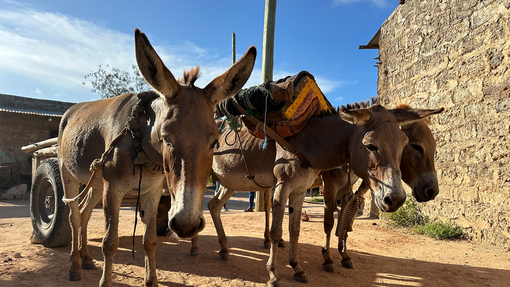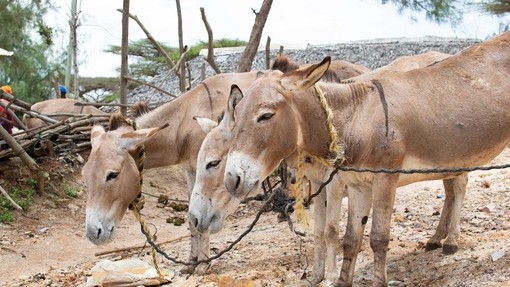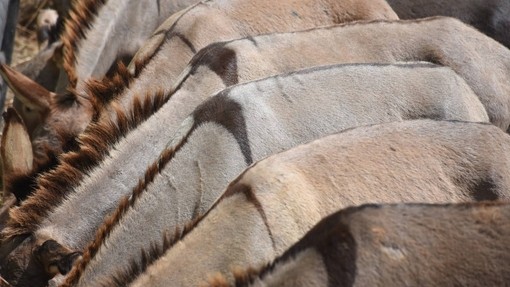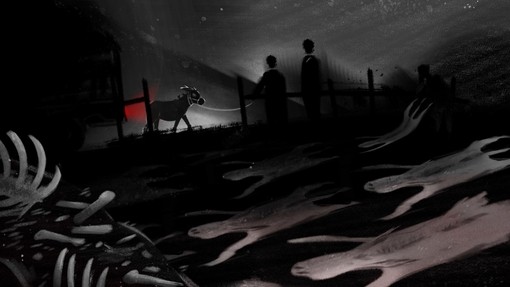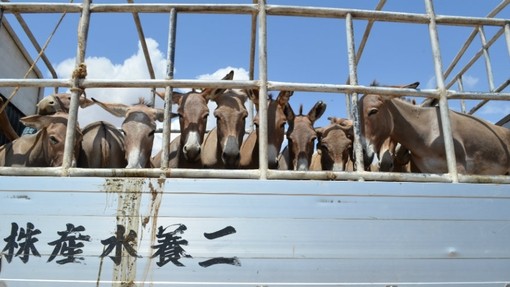
Objections to proposed plans shelves project
Earlier this year, the Livestock Development division of Khyber Pakhtunkhwa Province announced plans to ‘farm’ and export 80,000 donkeys to China within three years. This week, media reports from Pakistan revealed that objections have meant that the project is now shelved.
The Donkey Sanctuary was seriously concerned about the welfare implications of this project which sought to supply skins to make ‘ejiao’, a traditional Chinese medicine made from donkey-derived gelatin. Evidence from around the world points to the strong likelihood of long distance transport as well as holding, handling and slaughter issues which would all potentially introduce significant biosecurity issues as well as physical and stress-related welfare concerns.
On 3rd September 2015, a meeting chaired by Pakistan’s Finance Minister Ishaq Dar approved a ban on the export of donkey skins due to the alarming and unsustainable rise in exports of 100,000 skins (a 142% increase) in just 12 months. At that time, Pakistan became the first country to halt the trade in skins and since then, a further 17 countries have also stood against the trade, citing urgent concerns about unsustainable off-take, as well as the inhumane treatment of animals and the dire environmental consequences of the trade.
Simon Pope, Campaigns and Rapid Response Manager at The Donkey Sanctuary, said “Pakistan’s original statement to halt the export of donkeys and their skins was, and still is, highly appropriate given that the international trade in donkey skins is a major threat to donkey populations globally and is a significant cause of suffering. Given the significant welfare and sustainability challenges with the proposed project in Khyber Pakhtunkhwa, we applaud the decision to shelve this project and are ready to offer our support and evidence to help maintain the current halt on exports.”
The Donkey Sanctuary does not promote or endorse commercial donkey farming to create donkey-products such as meat, milk and skins, and believe that donkeys as a species are not suited to modern farming practices and demands. Long pregnancies and other species-specific factors mean that in order to farm 80,000 donkeys in three years, the province would need to already have an enormous breeding herd as well as significant infrastructure and standards in place. As there is no evidence that these exist, The Donkey Sanctuary was deeply concerned that donkeys would in fact be sourced from families that depend on them for the livelihoods, and where the remaining donkeys would need to work harder than ever to cover the losses.
There is overwhelming evidence that the current trade in donkey skins causes suffering on a scale previously unseen and that the numbers of donkeys being taken are at times depriving communities of the animals on which they depend for their transport and livelihoods. This is exacerbated by a thriving illegal trade with ongoing reports of donkey thefts from around the world. The Donkey Sanctuary calls for the trade to be halted until there is evidence to demonstrate that it is both humane and sustainable.
Help stop the slaughter
Donate todayShare this page
Tags
- News

